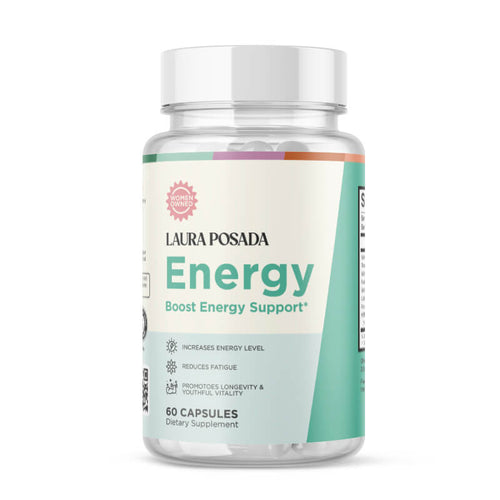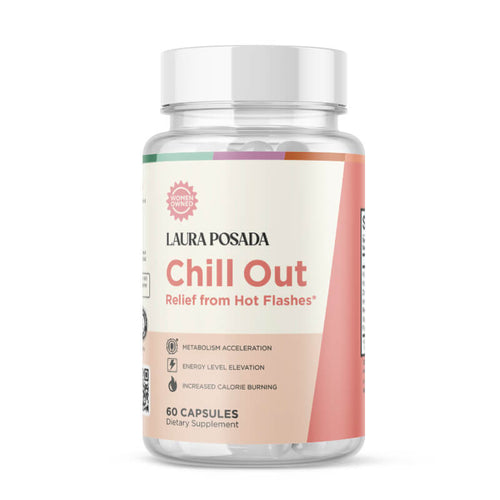Yes, you read that right, menopause can cause up to 34 very varied symptoms (also known as climacteric), ranging from the famous hot flashes and night sweats to stranger ones like burning mouth or electric shock sensations. But you don't need to worry too much because 1) not all women experience all the symptoms and to the same extent and 2) there are things you can do to alleviate them. But let's start at the beginning with the most basic of this natural biological process in a woman's life.
The stage leading up to menopause is called perimenopause (meaning “around menopause”). It usually begins around age 40 when levels of the female sex hormones estrogen and progesterone begin to decline. These hormones, which are produced in the ovaries, have many functions in a woman’s body. During this stage, a woman still has menstrual periods, although they may become irregular, and she is most likely still fertile. She may also begin to experience some discomforts such as fatigue, weight gain, hot flashes, mood swings, etc.
Menopause marks the end of menstrual periods and the fertile age. It is diagnosed when a woman has gone 12 months without menstruation. According to the Mayo Clinic, menopause can occur between the ages of 40 and 50, but the average age is 51 in the United States. By that time, at least 85 percent of women experience some type of menopause symptoms. According to a recent study by Wake Forest School of Medicine in North Carolina, more than half of women experience these unpleasant symptoms for seven or more years, especially hot flashes and night sweats. These eventually go away for 90 percent of women.
And what are the 34 symptoms? Depression, anxiety, sleep problems, hot flashes, vaginal dryness, decreased libido, joint pain, osteoporosis, hair changes, headaches, irregular heartbeat, weight gain, memory changes, difficulty concentrating, night sweats, bloating, irregular menstrual periods, breast pain, tingling in extremities, burning mouth, taste changes and dry mouth, digestive changes, muscle pain and tension, electric shock sensation, itching, urinary incontinence, dizziness, allergies, brittle nails, increased body odor, irritability, panic disorder, and mood swings.
Now, does this mean that you are going to have all of those symptoms? No, every woman is different and experiences the symptoms with different intensities. According to a study carried out in Cuba, for 49% of women the symptoms are severe, for 31% of women they are moderate and for 23% of women they are mild.
Again, don't worry because there are things you can do to alleviate them: maintain a healthy diet high in phytoestrogens, with lean proteins, vegetables, complex carbohydrates and low in hot, spicy foods, sugars, salt, caffeine; limit alcohol consumption and smoking; exercise daily combining cardio with strength and endurance; take natural supplements designed to alleviate the most common symptoms of menopause, and most importantly, despite everything, maintain a positive attitude to turn this inevitable phase into the best of our lives.




